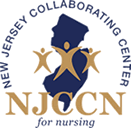Apr 14, 2020 | Legislative Action, NJCCN
NJCCN Researchers Edna Cadmus, PhD, RN, NEA-BC, FAAN; Pamela B. de Cordova, PhD, RN-BC; Susan Weaver, PhD, RN, CRNI, NEA-BC, and Arun Ravichandran, MS published their research on the role of APNs in addressing access to care in the Journal of Nursing Regulation. “Access to Care in New Jersey: Making the Case for Modernizing Legislation” is available at https://www.journalofnursingregulation.com/
Apr 8, 2020 | Legislative Action, NJCCN, Partner Organizations
 Governor Murphy has issued an executive order suspending certain restrictions on the scope of practice for APNs and PAs during the state of emergency and public health emergency declared on March 9, 2020. Under these emergency orders, APNs and PAs temporarily will be able to practice with greater autonomy, including independent authority to prescribe controlled dangerous substances (CDS) when appropriate.
Governor Murphy has issued an executive order suspending certain restrictions on the scope of practice for APNs and PAs during the state of emergency and public health emergency declared on March 9, 2020. Under these emergency orders, APNs and PAs temporarily will be able to practice with greater autonomy, including independent authority to prescribe controlled dangerous substances (CDS) when appropriate.
Apr 1, 2020 | Legislative Action, NJCCN, Partner Organizations
Excerpted from Press Release at Insider NJ
To view the full article, visit https://www.insidernj.com/press-release/governor-murphy-signs-executive-order-remove-barriers-health-care-professionals-joining-new-jerseys-covid-19-response-provide-protections-front-line-health-care-responders/
Governor Murphy Signs Executive Order to Remove Barriers to Health Care Professionals Joining New Jersey’s COVID-19 Response and Provide Protections for Front Line Health Care Responders
April 1, 2020, 3:34 pm | in
TRENTON – Governor Phil Murphy today signed Executive Order No. 112, authorizing the Division of Consumer Affairs to temporarily reactivate the licenses of recently retired health care professionals and grant temporary licenses to doctors licensed in foreign countries. The executive order also temporarily permits certain health care professionals to perform acts outside of their ordinary scope of practice and grants broad civil immunity to health care professionals and facilities providing services in support of New Jersey’s COVID-19 response efforts who are acting in good faith.
Mar 23, 2020 | Legislative Action, Partner Organizations
Updates on the Board’s action regarding the COVID-19 virus may be found on the Board’s website: https://www.njconsumeraffairs.gov/nur/Pages/default.aspx
Alerts include information on: 1) Partial implementation of the Nurse Licensure Compact; 2) Guidance for Out-Patient Providers Evaluating Patients; and 3) a policy statement regarding nurse responsibility during the current health crisis.
Aug 8, 2019 | Legislative Action
Legislation entering New Jersey into the Enhanced Nurse Licensure Compact (eNLC) will allow licensed New Jersey nurses to practice in any state that has also entered into this agreement. The bill (A-1597), sponsored by Assembly Democrats Herb Conaway, Paul Moriarty, Shavonda Sumter, Angela McKnight, Raj Mukherji and Joann Downey, was signed into law in July 2019. Prior to this licensure agreement, nurses had to obtain a license from each state in which they intended to practice nursing. This process involved applications, fees and possibly even testing that could make it more complicated for nurses to relocate or treat patients in other states.
The eNLC requires each participating state to use the same set of standards for licensure so that a nurse from one state will have the necessary qualifications to practice in any of the 33 other states that are a part of the compact. The compact not only makes it easier for nurses to move to other locations, but also allows them to partake in the remote treatment of patients in other states via telemedicine, while still practicing nursing in their home state.
Implementation date is yet to be determined. The National Council of State Boards of Nursing is hosting a series of webinars to discuss the impact of the eNLC. Registration is available online at https://www.ncsbn.org/nlc-meetings.htm.
Aug 1, 2019 | Legislative Action
Governor Phil Murphy signed legislation that will allow terminally ill New Jersey adults to end their lives peacefully, with dignity, and at their own discretion. The bill, which was sponsored by Assemblyman John Burzichelli and Senator Nick Scutari, makes New Jersey the eighth state to allow such end-of-life decisions with the assistance of medical professionals. The “Medical Aid in Dying for the Terminally Ill Act” permits terminally ill, adult patients residing in New Jersey to obtain and self-administer medication to end their lives. A patient’s attending and consulting physicians must determine that the patient has a life expectancy of six months or less, has the capacity to make health care decisions, and is acting voluntarily, in order for the patient to obtain the medication. The bill establishes additional procedures and safeguards that patients, physicians, and other health care professionals must follow before a qualifying patient may legally obtain and self-administer the medication.
The bill is in effect pending litigation as of August 1, 2019.

 Governor Murphy has issued an
Governor Murphy has issued an
You must be logged in to post a comment.